Case Study

Find Out…
How the Robert R. McCormick Foundation Communities Program partnered with Prosper Strategies to transform their messaging, grow their donor base and exceed their fundraising goals.
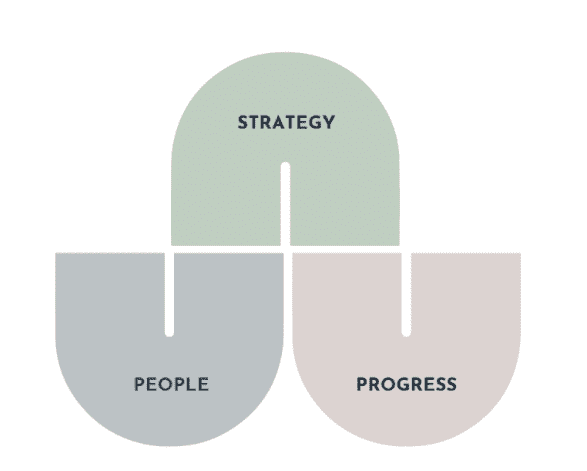
The Challenge
The McCormick Foundation Communities Program, the fundraising arm of the Foundation, partnered with Prosper Strategies beginning in early 2018 to find focus in their work and take a more innovative approach to their annual end-of-year fundraising campaign.
When our work together began, the Communities Program faced two key challenges. First, they had shifted their grantmaking approach to be strengths-based with a racial equity lens, but all their donor communications were very much needs-based. Second, the Foundation had heightened its connection to only Chicago-based fundraising partners, and needed to completely redefine their annual fundraising program to operate independently and achieve an aggressive $1M+ annual fundraising goal.
Prosper Strategies used the Nonprofit Strategy System™ to address these challenges. After discovering a compelling reason for being for the Communities Program, we built a new brand strategy and messaging platform for the Program, developed and implemented a highly successful end-of-year fundraising strategy, and created a measurement dashboard for tracking performance.

People
As with all work of this nature, engaging program and service participants, managing change, and fostering alignment among internal and external stakeholders were important parts of our process.
We leaned into our Shared Power Strategy™ philosophy and worked with the Communities Program team to develop an intentional plan for engaging their most important stakeholders throughout the process, starting with their grantees and beneficiaries.
It was critical that the end-of-year fundraising campaign was representative of the community voice, so throughout the campaign development process, we created opportunities for grantees to provide feedback through formal interviews, informal conversations and materials review. Making sure grantees felt comfortable about the way they and their communities were represented in the campaign was a top priority. Additionally, we conducted donor stakeholder interviews, focus groups and a survey, to capture these perspectives as well.
Internally, we partnered closely with Communities Program team members from campaign concept to conclusion, laying out clear responsibilities and assignments in the fundraising strategy to ensure role clarity and campaign success. We also met regularly to gain the insights of the McCormick Foundation’s C-Suite and board to incorporate their feedback and strengthen our final plans.
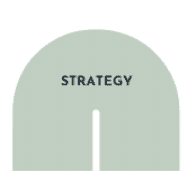
Strategy
Once we created our plan for stakeholder engagement, we conducted an organization and an ecosystem assessment. We wanted to find out what sort of messaging and fundraising campaign concept would be most effective at both describing the organization’s strength-based grantmaking approach and compelling donors to give.
In our organization assessment, we focused on a review of current Communities Program fundraising, marketing and communications materials. In our ecosystem assessment, we focused on comparing the McCormick Foundation’s messaging to other similar philanthropic organizations.
This research, as well as insights from stakeholders revealed some important insights:
- First, messaging needed to illuminate the Communities Program’s unique ability to support backbone organizations in neighborhoods like Englewood and Little Village with funding, capacity building and advocacy that allows them to build on their strengths and drive their own, community-led change.
- Second, despite internal fears to the contrary, current and prospective donors were receptive to strength-based messaging centered around the Foundation’s focus on racial equity.
Based on these findings, we made the recommendation to build a new brand strategy and messaging platform for the Communities Program focused on the idea of “opportunity for all.”
This led to the development of a new visual approach that utilized organic images of McCormick Foundation grantees, and key messages that moved the Communities Program toward more overt messaging about their racial equity-focused approach. We also developed a narrative arc to show how the directness of racial equity messaging could be dialed up over time.
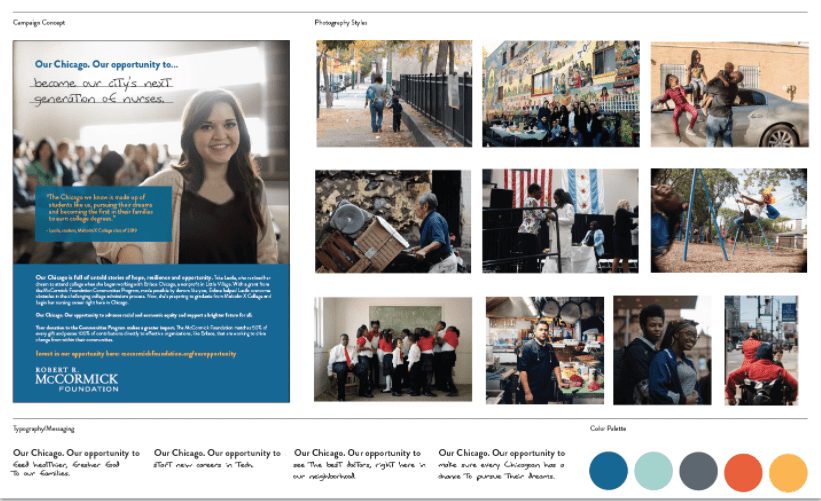
We moved on to develop a fundraising Strategy for the Communities Program focused on their end-of-year campaign. This work began with the development of a campaign concept focused on telling stories of opportunities experienced by beneficiaries of the services of several of the Foundation’s grantees: The Greater Chicago Food Depository, Beyond the Ball, Teamwork Englewood and Enlace. Engaging the people served by those organizations in telling their own stories was critical, especially given the McCormick Foundation’s new grantmaking approach, which also emphasized the importance of community voice. We gathered their stories through two days of interviews, photo shoots, and video shoots with an Emmy Award-winning videographer, which would allow us to weave their narratives through all campaign touchpoints.
Once the campaign concept had been built out, we detailed all of the strategies and tactics (direct mail, email marketing, lead generation, social media, social media advertisements, etc.) needed to meet the McCormick Foundation’s goals for their end-of-year fundraising campaign in a comprehensive fundraising strategy document. The fundraising strategy included a detailed description of each tactic with content direction, timing, budget, design dates and more, as well as a calendar to keep everyone on the same page and moving forward through the campaign.
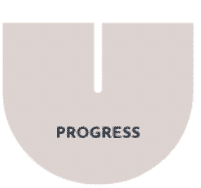
Progress
Prosper Strategies worked in partnership with Communities Program staff to bring the fundraising strategy to life and ensure goals were met.
We wrote and designed direct mail pieces, developed and managed social media and Google ads, oversaw the creation of videos and grantee stories for the McCormick Foundation blog, and ran a new donor acquisition campaign on Facebook.
To ensure progress on the goals set in the fundraising strategy, we set up a cadence of weekly meetings with the staff most focused on the campaign and monthly meetings with leadership. We also created a shared measurement dashboard with both benchmarks from the previous year’s campaign and goals for the current year’s campaign. We used this dashboard to track weekly metrics across all tactics so we could monitor in real time and make shifts as needed based on results.
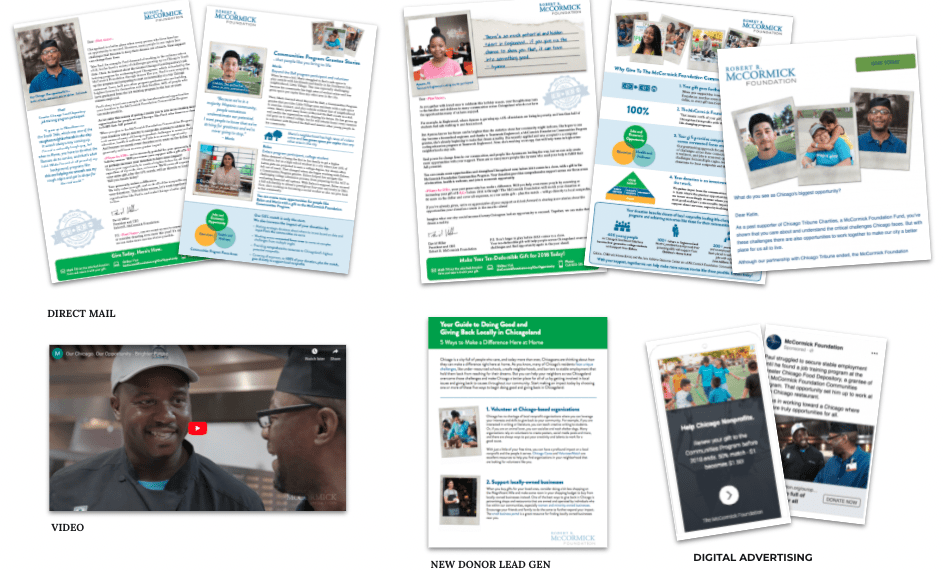
Results
Total fundraising revenue grew 13% between 2017 and 2018, and Giving Tuesday donations grew 267% during the same time period. Additionally, a small scale new donor acquisition effort planned as part of this campaign resulted in the acquisition of over 1,100 new donor leads.
In 2019, the McCormick Foundation again chose to partner with Prosper Strategies to build upon the strategy and campaign we initiated in 2018. This campaign was even more successful than the last, earning over $1M in donations from a mix of existing and new donors.
Notably, our research indicated that a move toward racial equity messaging could be an effective way to inspire donor support, and this hypothesis has been proven true. 2018 and 2019’s strength-based campaigns nod to racial equity more than any previous communications from the Communities Program, and are the best-performing end-of-year fundraising campaigns in the McCormick Foundation’s history.
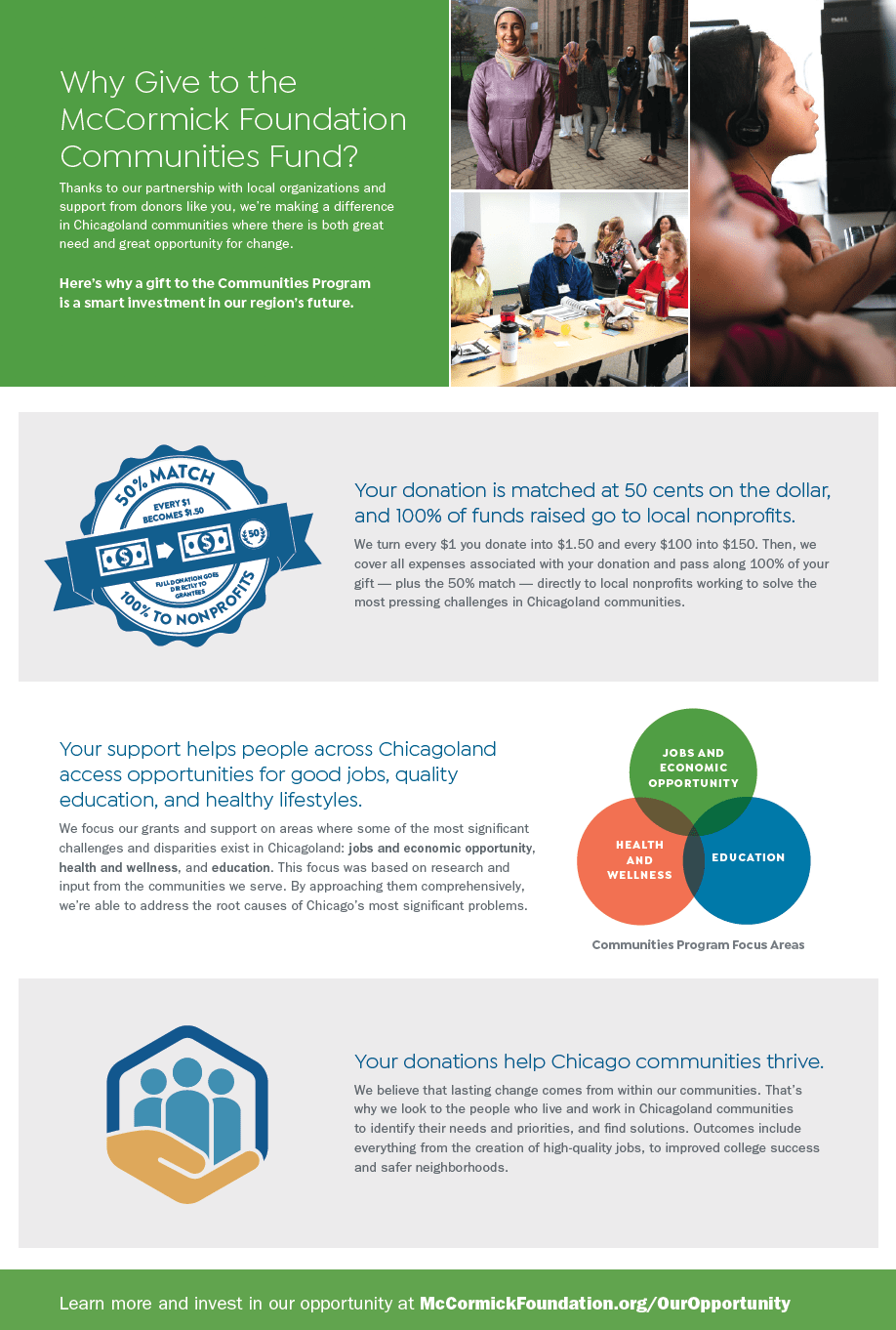
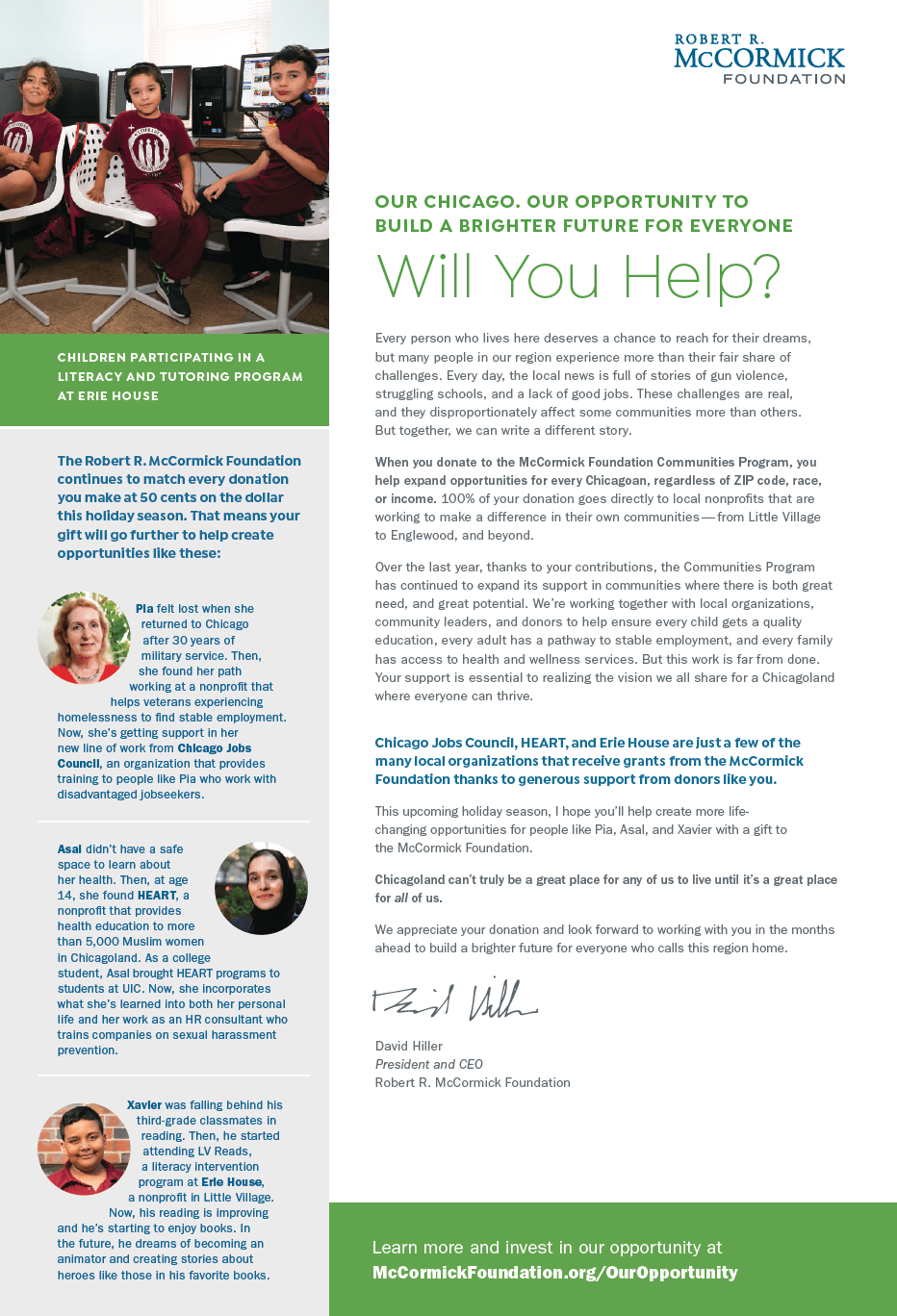
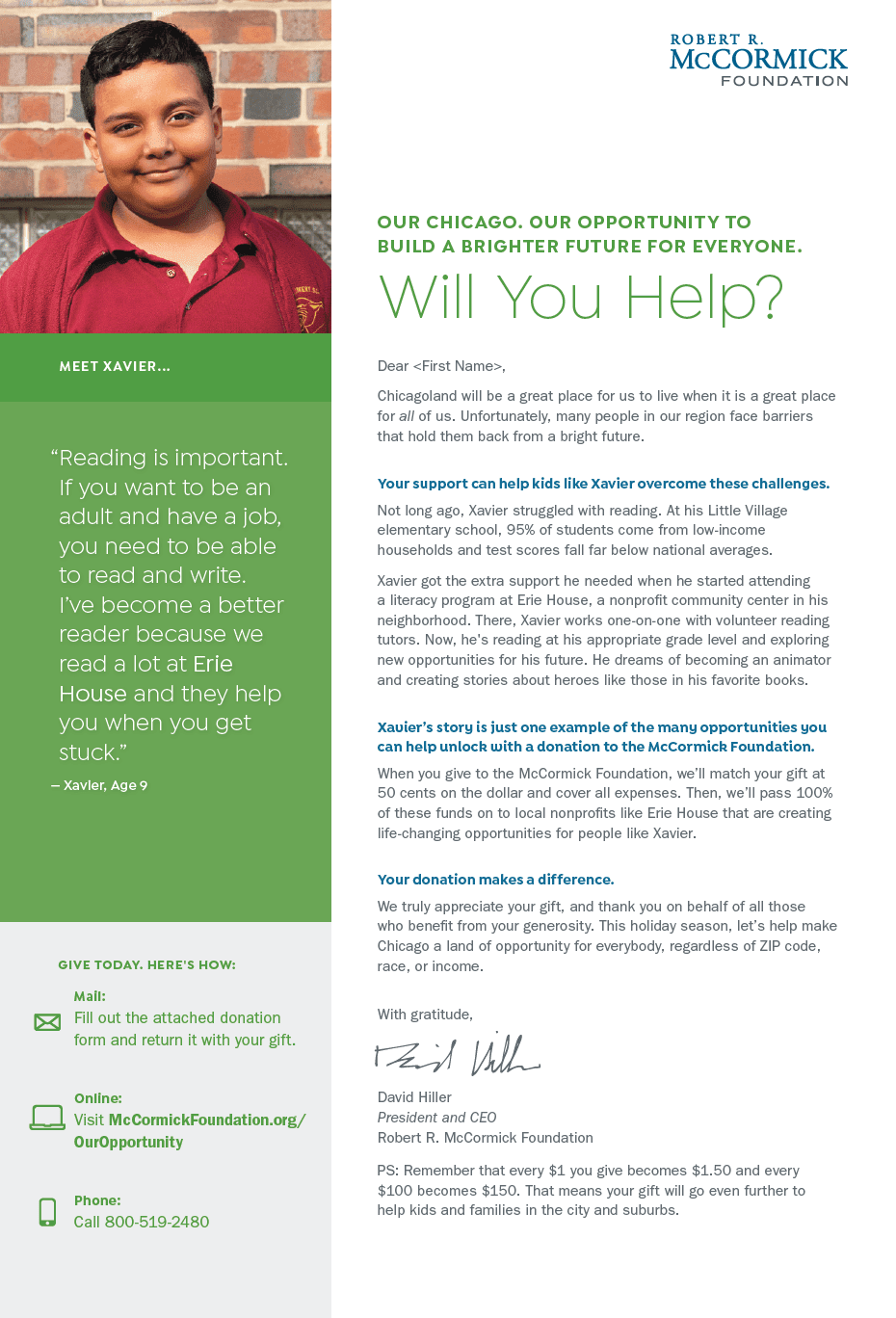
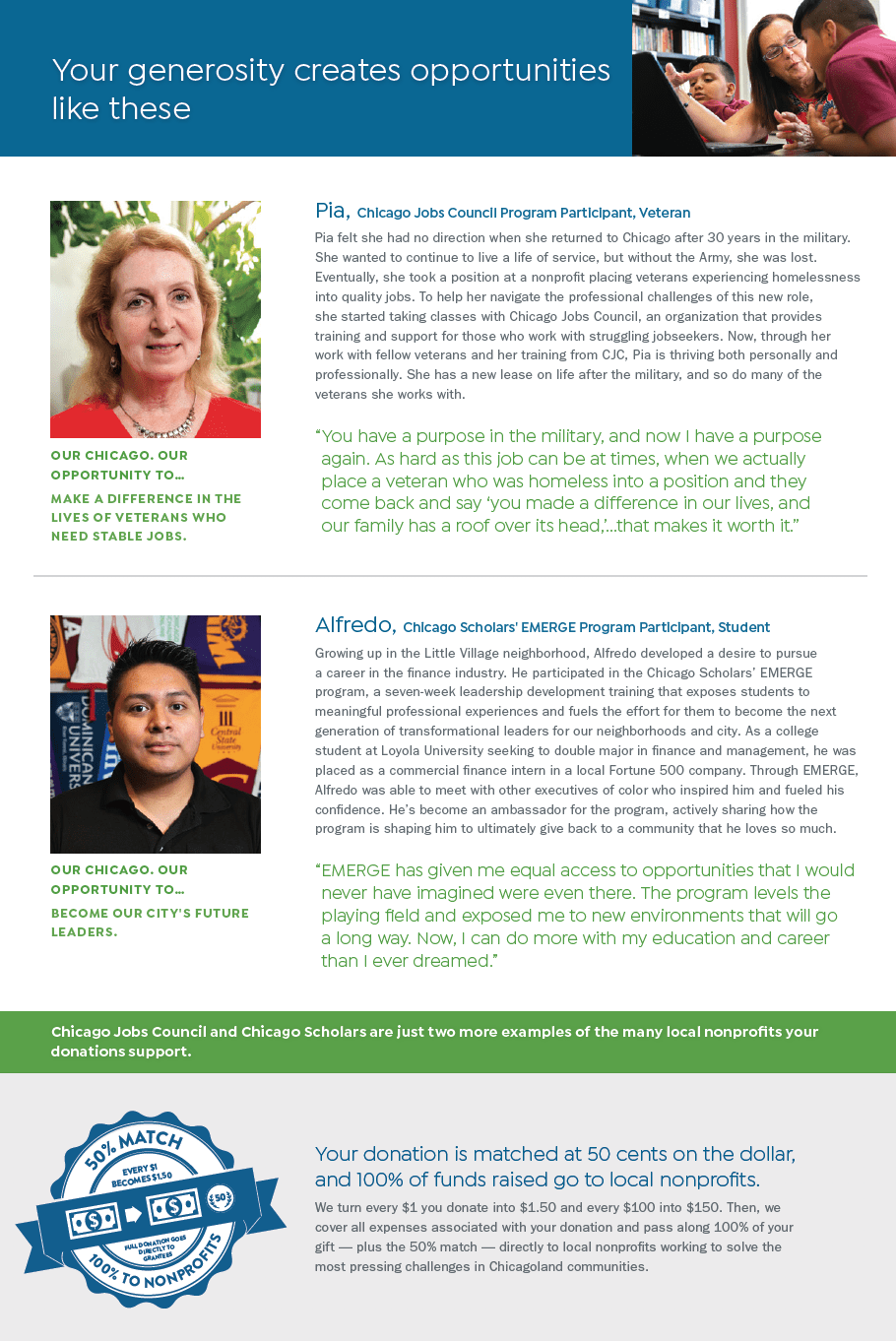
Growth in total fundraising revenue between 2017 and 2018.
Growth in funds raised on Giving Tuesday between 2017 and 2018.
Growth in total fundraising revenue between 2017 and 2018.